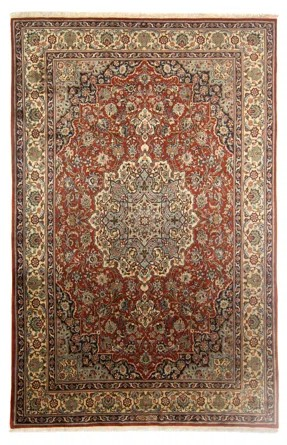The traditional role of carpet weaving and embroidery in the social lives of Central Asian women.
This is a narrative approach to the revival of 15th century carpets in Khiva, a desert oasis in Uzbekistan. Illuminations on vellum – containing the only surviving representations of textiles from this era – flourished, despite the Islamic prohibition on representative art. They are all we had left of Timurid Carpets until Chris’s workshop began to weave them to life again. The lecture will examine the traditional role of carpet weaving and embroidery in the social lives of Central Asian women and how social and political influences led to the decline of textile production.
THE ARTS SOCIETY ACCREDITED LECTURER

Mr Chris Aslan
Chris Aslan was born in Turkey (hence the name Aslan) and spent his childhood there and in war-torn Beirut. After school, Chris spent two years at sea before studying Media and journalism at Leicester University. He then moved to Khiva, a desert oasis in Uzbekistan, establishing a UNESCO workshop reviving fifteenth century carpet designs and embroideries, and becoming the largest non-government employer in town. He was kicked out as part of an anti-Western purge, and took a year in Cambridge to write A Carpet Ride to Khiva. Chris then spent several years in the Pamirs mountains of Tajikistan, training yak herders to comb their yaks for their cashmere-like down. Next came a couple more years in Kyrgyzstan living in the world’s largest natural walnut forest and establishing a wood-carving workshop. Since then, Chris has studied and rowed at Oxford, and is now based in Cambridge, but with plans to move to North Cyprus. When he’s not lecturing for The Arts Society, he writes. His latest book, Unravelling the Silk Road, is published by Icon Books. Chris also takes tours to Central Asia, returning whenever he can, having left a large chunk of his heart out there.
OTHER EVENTS
A day about the very broad range of foods that our Georgian ancestors enjoyed, both in and out of the home.





